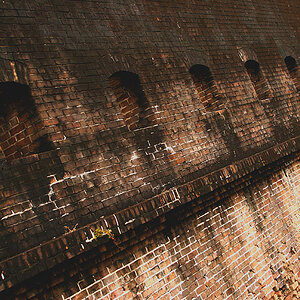Navigation
Install the app
How to install the app on iOS
Follow along with the video below to see how to install our site as a web app on your home screen.

Note: This feature currently requires accessing the site using the built-in Safari browser.
More options
You are using an out of date browser. It may not display this or other websites correctly.
You should upgrade or use an alternative browser.
You should upgrade or use an alternative browser.
Senior Portraits lens choice
- Thread starter Jade16
- Start date
- Joined
- Jul 8, 2005
- Messages
- 45,747
- Reaction score
- 14,806
- Location
- Victoria, BC
- Website
- www.johnsphotography.ca
- Can others edit my Photos
- Photos OK to edit
Yes. There really is no "best" answer to questions like this. It's whatever you want to achieve with the shoot. That said, I always prefer longer focal lengths to shorter for portrait work, and almost never shoot below 85 for single-person portraits with 85, 105, and 135 being my preferred lengths.
ronlane
What's next?
- Joined
- Aug 3, 2012
- Messages
- 10,224
- Reaction score
- 4,961
- Location
- Mustang Oklahoma
- Website
- www.lane-images.com
- Can others edit my Photos
- Photos OK to edit
quick question..would it be better to shoot with a 50mm 1.4 OR a 24 - 70 2.8 for a senior outdoor portrait. Shooting with a Mark iii and it is overcast. Which would be best??
press the button on your iPhone and say, "Hey Siri, flip a coin" If she says heads, use the 50 1.4, if she says tails use the 24-70.
You aren't going to be using either one of them wide open, so it's more what you are comfortable with. They are both great lenses and will give you some very sharp photos.
Jade16
TPF Noob!
- Joined
- Sep 23, 2015
- Messages
- 46
- Reaction score
- 1
- Can others edit my Photos
- Photos NOT OK to edit
lol ok, good to know, but I just don't want to be switching back and forth with the lenses. I am pretty nervous as it's my first senior shoot. any tips? I have been shooting in TV mode most frequently, but have found that I'm beginning to outgrow it. Sometimes I just can't get the shot I want bright enough so I've begun playing around with shooting in manual, but am not quite comfortable in it yet.
quick question..would it be better to shoot with a 50mm 1.4 OR a 24 - 70 2.8 for a senior outdoor portrait. Shooting with a Mark iii and it is overcast. Which would be best??
press the button on your iPhone and say, "Hey Siri, flip a coin" If she says heads, use the 50 1.4, if she says tails use the 24-70.
You aren't going to be using either one of them wide open, so it's more what you are comfortable with. They are both great lenses and will give you some very sharp photos.
Jade16
TPF Noob!
- Joined
- Sep 23, 2015
- Messages
- 46
- Reaction score
- 1
- Can others edit my Photos
- Photos NOT OK to edit
I'm always going for the best bokeh. LOVE bokeh. I'm thinking I should probably start off with my 50mm and then later switch to the 24-70.Yes. There really is no "best" answer to questions like this. It's whatever you want to achieve with the shoot. That said, I always prefer longer focal lengths to shorter for portrait work, and almost never shoot below 85 for single-person portraits with 85, 105, and 135 being my preferred lengths.
Designer
Been spending a lot of time on here!
- Joined
- Apr 13, 2012
- Messages
- 18,505
- Reaction score
- 4,853
- Location
- Iowa
- Can others edit my Photos
- Photos OK to edit
Boost the ISO, use a reflector to add light, (good for overcast days) and use the 70mm, as that appears to be your longest focal length lens.Sometimes I just can't get the shot I want bright enough so I've begun playing around with shooting in manual, but am not quite comfortable in it yet.
Derrel
Mr. Rain Cloud
- Joined
- Jul 23, 2009
- Messages
- 48,225
- Reaction score
- 18,941
- Location
- USA
- Website
- www.pbase.com
- Can others edit my Photos
- Photos OK to edit
I would much rather have the 24-70 zoom than the 50mm prime lens. The zoom will give you more focal length flexibility AND a longer focal length, which will allow you to be 7 to 25 feet away, and to get both environmental portraits, as well as close-ups, head and shoulder shots, half body shots, 3/4 length shots, and full length standing shots. While a 50mm lens is a decent lens, it is a one-tricky pony, whereas the zoom is a wide, moderate wide, normal, and a short telephoto lens; in a word, the zoom gives versatility where the 50mm gives the same thing, on every shot, 50mm angle of view and 50mm magnification, and 50mm background rendering.
- Joined
- Aug 15, 2013
- Messages
- 13,695
- Reaction score
- 3,369
- Location
- SE Michigan
- Can others edit my Photos
- Photos OK to edit
here's a short but good article with picture examples of Perspective Distortion ==> This Image Shows How Camera Lenses Beautify or Uglify Your Pretty Face
This would be good to read too as it reviews pincushion, barrel etc distortion ==> What is Distortion?
This would be good to read too as it reviews pincushion, barrel etc distortion ==> What is Distortion?
Jade16
TPF Noob!
- Joined
- Sep 23, 2015
- Messages
- 46
- Reaction score
- 1
- Can others edit my Photos
- Photos NOT OK to edit
how is best to use my reflector when it is overcast?? same as when the sun is out? I simply cannot tell if it helps with exposure when overcast since the sun isn't out!Boost the ISO, use a reflector to add light, (good for overcast days) and use the 70mm, as that appears to be your longest focal length lens.Sometimes I just can't get the shot I want bright enough so I've begun playing around with shooting in manual, but am not quite comfortable in it yet.
Derrel
Mr. Rain Cloud
- Joined
- Jul 23, 2009
- Messages
- 48,225
- Reaction score
- 18,941
- Location
- USA
- Website
- www.pbase.com
- Can others edit my Photos
- Photos OK to edit
Jade16 said:why are longer focal lengths preferred?
Well, for a number of reasons. I'll simplify: if the camera is too close to a person, say inside of 7 feet, then the nose and anything that extends toward the camera tends to become literally larger on-film than it ought to be: extended hands and arms are made larger, the nose is made larger, the ears can tend to be a bit larger, feet and legs that are extended toward the camera look larger. In other words, to get a big, frame-filling image with a short length lens, there is a terrific temptation to get too close, and being too close causes exaggerated size to things that are closer to the camera, such as the nose. Long lenses tend to force the camera to be placed back a ways!
Second, a longer length lens has a narrower angle of view, so it's easier to select the subject, and to eliminate other things from the environment. The longer length lens brings with them something called selectivity or narrow angle of view; which allows you to eliminate a wide swath of the real world stuff that would be seen in the picture in the background if a short lens length were used.
Third, the longer lens tends to physically (meaning LITERALLY, in real,measurable with a ruler type terms) enlarge background elements, and to make the degree of background blur higher than with a shorter lens. The longer lenses, like 200mm and 300mm cause a very pronounced magnifying of background elements, and they "compress" the planes of the face, which can look quite attractive. The nice blur the longer lengths give allows the backdrop to be subdued. This is why the 70-200mm zoom and to a lesser extent the 70-300mm lenses are handy for portraiture outdoors. A long telephoto magnifies the background's size, and can make a distant background appear to be very close to the subject.
Designer
Been spending a lot of time on here!
- Joined
- Apr 13, 2012
- Messages
- 18,505
- Reaction score
- 4,853
- Location
- Iowa
- Can others edit my Photos
- Photos OK to edit
There is a surprising amount of light in an overcast sky. Just aim the reflected light at your subject's face and neck. Keep it close, and just out of the frame. Take someone along to hold and aim the reflector.how is best to use my reflector when it is overcast?? same as when the sun is out? I simply cannot tell if it helps with exposure when overcast since the sun isn't out!
If the day is sunny and bright, you might need a flash to balance the sunlight.
Designer
Been spending a lot of time on here!
- Joined
- Apr 13, 2012
- Messages
- 18,505
- Reaction score
- 4,853
- Location
- Iowa
- Can others edit my Photos
- Photos OK to edit
I'm going to use the term that I'm comfortable with: "Background blur".I'm always going for the best bokeh. LOVE bokeh. I'm thinking I should probably start off with my 50mm and then later switch to the 24-70.
The degree of background blur will depend a great deal on how far away the background is. Literally how much distance is there between your subject and whatever is at the background.
For instance: Here's you and your camera. Then about 20 or 25 feet away is your subject. Then waaaaayy off in the distance is a row of trees, say; 150 feet away or so. Then you will get background blur!
- Joined
- Oct 4, 2011
- Messages
- 10,726
- Reaction score
- 5,467
- Website
- sm4him.500px.com
- Can others edit my Photos
- Photos OK to edit
Can't improve on the advice already given for a senior shoot.
If it's a shoot for a two-year-old...I'd suggest using an 800mm.
If it's a shoot for a two-year-old...I'd suggest using an 800mm.
Similar threads
- Replies
- 3
- Views
- 318
- Replies
- 1
- Views
- 442

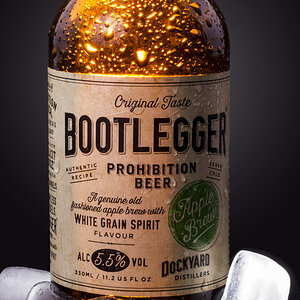
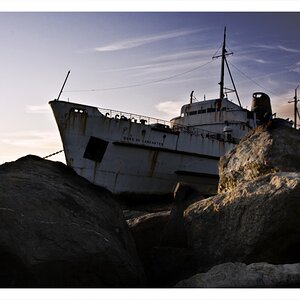
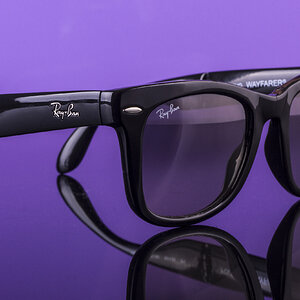
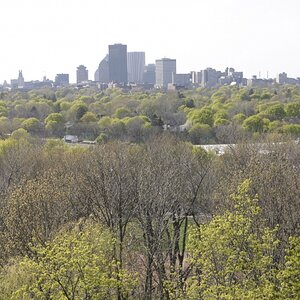

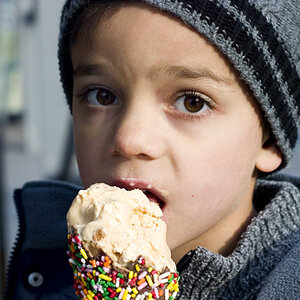
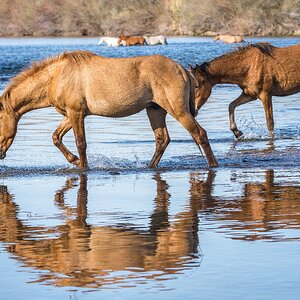
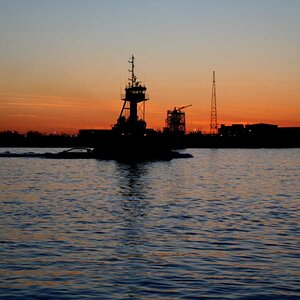
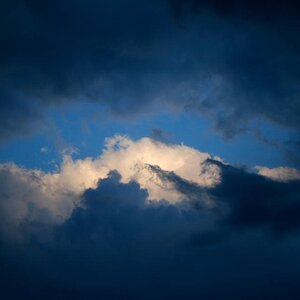
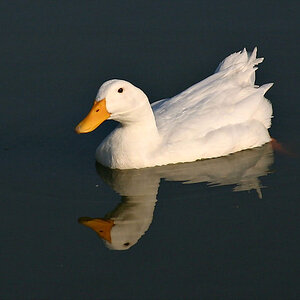
![[No title]](/data/xfmg/thumbnail/34/34145-b89ccc67a24004d6d7a9026a7395914b.jpg?1619736318)
